|
I have previously mentioned in my blog the so-called Monty Hall Puzzle (named after a Canadian-American game show host). The puzzle involves the setup of a recurring game show where you are given a choice between three doors. Behind one door is a car, and behind the other two doors there are goats. You pick one door, and the game show host proceeds to open one of the remaining two doors revealing a goat (note: he knows where the car and the goats are, and after a player makes a choice, he always opens a door revealing a goat). The game show host then asks you if you want to switch your original selection to the other door. The question is: is it to your advantage to switch your choice of doors? This puzzle was sent in 1990 to an American writer, Marylyn vos Savant, who writes a weekly column for the magazine Parade where she solves puzzles for her readers. Marylyn at the time was recognized by the folks at Guinness World Records to be the person with the highest IQ in the world before that category was eliminated from their world record groupings in 1990. Marylyn examined the puzzle and in a very matter of fact way replied that if you switch your original door choice, your chances of winning will be 2/3, but if you retain your original choice, your chances of winning will be 1/3. This ignited a huge controversy that degenerated into an insult fest. The effort to verify Marylyn’s answer ended up involving tens of thousands of people ranging from students at schools to mathematicians and statisticians from prestigious research centers in the United States. She was eventually proven to be right. Over the years I’ve brought up this puzzle several times, and the reactions that I’ve got from people when I mention the solution and try to explain it have amazed me. Their demeanor changes. Some get impatient, and some even get frankly hostile. The solution to this puzzle seems to be so counterintuitive that people feel that you are peddling nonsense to them when you reveal the correct answer, and they get mad at you. In their minds it’s as if they are holding a cup, and I come along trying to convince them that they are not holding a cup. But the solution is correct. Yes, at the end there are two doors. Yes, behind one is a goat, and behind the other is a car. But no, the probability of winning the car is not 50%. If you keep your original choice, it is 33.3% (1/3) and if you switch it is 66.6% (2/3). And in case this doesn’t amaze/confuse you enough, consider the following: Suppose that while you are in the game show pondering whether to change your original choice, a person comes in from the street. This person doesn’t know anything about what has been happening in the game show. Suppose that this person is asked to choose one of the two doors that you are looking at. What is the probability that this person would win the car if the person chooses one of these two doors at random? The amazing answer is 50%! In order to understand what’s going on, first we will start with two doors as shown in figure-1. In a random fashion, I place a car behind one of the doors and a goat behind the other, and I ask you to pick a door. Your chances of winning the car are 50%. If we repeat this trial 18 times, you will win the car 9 times out of 18 (statistically speaking). So far so good. But now suppose that I do not place the car behind the doors in a random fashion. Suppose that I always place the car behind the door on the right (figure-2). If we repeat the trial 18 times and you choose a door at random every time, you will still win the car 9 times out of 18 (50%). However, if somebody tips you off that I will always place the car behind the door on the right, and you adapt your door picking strategy to always select the door on the right (non-random choosing), you will win a car 18 times out of 18 (100%)! Of course, if you instead always pick the door on the left, you will never win a car. Please notice that in this example THERE ARE ONLY TWO DOORS, behind one is a car, and behind the other is a goat, YET if you pick the door on the left you will NEVER win a car. If you pick the door on the right, you WILL ALWAYS win a car. And if you pick at random between the two doors you will win the car HALF OF THE TIME! This illustrates the key point behind probability determination: randomness. If you know the allocation of the car to a given door is not random, you can use this information to increase your chance of winning (in the above case 100% by choosing the door on the right). Now suppose that we repeat the trial another 18 times, but I place the car behind the door on the left 6 times out of 18 (6/18 or 1/3: 33.3%), and I place the car behind the door on the right 12 times out of 18 (12/18 or 2/3: 66.6%) as shown in figure-3. If you choose a door at random, you will pick on the average the door on the left 9 times and win the car on 3 occasions, and the door on the right 9 times and win the car on 6 occasions for a grand total of 9 (6+3) times out of 18, or 50%. But again, if somebody tips you off to what I’m doing, and you always select the door on the right, you will win a car 12 times out of 18 (12/18 or 2/3: 66.6%). Of course, if you instead always pick the door on the left, you will win the car only 6 times out of 18 (6/18 or 1/3: 33.3%). Again, please notice: THERE ARE ONLY TWO DOORS, behind one a car, behind the other a goat, YET if you pick the one on the left you win a car 1/3 of the time. If you pick the one on the right, you win the car 2/3 of the time. And if you pick at random between the two doors, you win 50% of the time! At this point, even if you agree with me that lack of randomness can lead to different probabilities of winning the car when there are only two doors (depending on how you choose) you can still argue that increasing your chances of winning in the above examples depends on somebody tipping you off, in other words: cheating. But what if you could obtain this information without cheating? In the Monty Hall puzzle, there are three doors. Behind one there is a car, and behind the other two there are goats. So the three possible arrangements are #1 car-goat-goat, #2 goat-car-goat, and #3 goat-goat-car (see figure-4). IF the car is placed behind the doors at random, and you repeat the Monty Hall trial 18 times, the chance of picking the door with a car is 6 in 18 (1/3: 33.3%) whether you choose the doors at random or not. Then, after you make your choice, the game show host opens one of the two remaining doors revealing a goat and asks you if you want to change your initial pick. The key to understanding the answer to the Monty Hall puzzle is to realize that by opening the door and revealing a goat, the game show host has eliminated the element of randomness in the allocation of the car to the doors. By eliminating that extra door, the odds now favor the door opposite to the one you picked! Say that, for the sake of simplicity, out of the three doors (left, center, and right) you have chosen the door on the left (marked with an X under the door for the three possible arrangements: see below). That door will have a car behind it 1/3 of the time. But now the game show host opens one of the remaining doors revealing a goat (door crossed out). By doing this, the game show host changes the original possible three-door arrangement of #1 Car-Goat-Goat, #2 Goat-Car-Goat, and #3 Goat-Goat-Car, and converts it into a two-door arrangement: #1 Car-Goat, #2 Goat-Car, and #3 Goat-Car where your door of choice is the one on the left (marked with the X) as shown in figure-6. But notice that in the new two door scenario arrangements #2 and #3 are the same. The game show host has created a situation identical to the one depicted in the example of figure-3 where there are only two doors, and one of the doors is favored over the other when it comes to placing the car behind the doors (in this case the one opposite to the one you picked: the one on the right). Therefore, just like in the situation of figure-3, you can exploit this information by switching to the other door and increasing your probability of winning from 1/3 to 2/3. The difference, of course, is that in the example of figure-3 there was cheating involved (somebody tipped you off), whereas in the actual Monty Hall puzzle, your knowledge about how the setup came into being (the opening of the door revealing a goat) allows you to exploit it to improve your odds of winning the car. On the other hand, the person walking in from the street, who doesn’t have the information you have, will choose between the doors at random, so their chance of winning the car is 50%.
Many people automatically assume randomness when gauging the probability of an either-or event. At the end there are two doors, behind one is car and behind the other is goat, therefore thinking that there is a 50% chance of winning seems like a no-brainer. This may be why people are so confused and exasperated by the correct answer to the Monty Hall puzzle. But what my explanation illustrates is that if you can gain information about a setup and figure out that it is not random, you can use this information to increase your odds of winning by changing your picking strategy. The Monty Hall puzzle is, of course, just a puzzle, but it bears on how we conduct ourselves in the real world when making choices about either-or outcomes. Should I buy a mortgage on this house? Will the housing market go up or down? Should I buy the stock of this company? Will the stock go up or down? Should I begin looking for work? Will I get laid off or not? The probability of most real-life either-or events is determined by forces which are not random. If we understand probability and we identify these forces, we can make the odds work in our favor. Unfortunately, many people misjudge their chances or get dupped into believing false probability determinations, and they end up with, well…a goat. The Monty Hall Puzzle image by Cepheus is in the public domain, all other images belong to the author and can only be reproduced with permission.
0 Comments
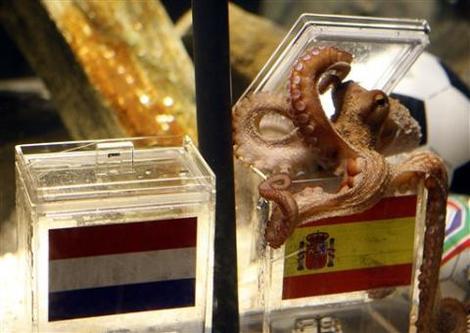 Excitement was in the air as the world was once again struck with World Cup fever, and the teams from 32 nations competed in Russia to decide who would be the world soccer champion. In the final France defeated Croatia to claim the title for the second time. However, rather than write about the science behind soccer, today I want to revisit the exploits of Paul, an unassuming octopus who dwelled in a tank at the Sea Life Center in Oberhausen, Germany, and who correctly predicted the outcome of 8 consecutive World Cup games back in 2010. 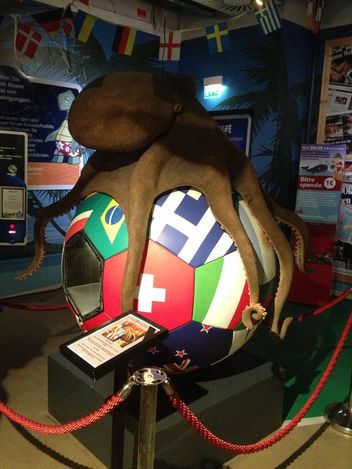 It all started during the 2008 matches for the European Soccer Cup. In what was a publicity stunt for the aquarium, Paul's keepers began introducing into his tank 2 plastic boxes each containing a tasty mussel. The boxes with lids that the octopus could open had the flag of the German team on one of them and the flag of the opposing team on the other. The idea was that the box that Paul opened first would be the winner of the game. Thus, during the European Cup Paul predicted that the German team would win all of its 6 games but got 2 of the results wrong when the German team was defeated by Croatia in the group phase and by Spain in the final. As it turns out, Paul was just honing his divination skills. Two years later, during the group phase of the World Cup the cephalopod correctly predicted that Germany would defeat Australia and Ghana, and lose against Serbia, but still he remained a local phenomenon. It was during the round of 16 games when Paul predicted that Germany would defeat England that he began to receive international attention, and then everyone went wild when the octopus correctly predicted that Germany would defeat Argentina in the quarter finals. Paul's divinations began to be transmitted live throughout Germany and to other countries, and pundits for and against the mollusk expounded their views in electronic and printed media. Paul became a superstar, a media sensation with his own Twitter and Facebook fan pages. The German soccer fans sensed that the mysterious forces that Paul channeled were on their side. Would Germany win the World Cup? Unfortunately it was not to be, Paul was an honest soothsayer and he called them like he saw them. For the next game he chose Spain as the winner. Gloom and doom washed over the German fans. The German players were shocked to learn the news: the cephalopod's "vibes" were no longer on their side. How could THEIR octopus do this to them? On the eve of the game they all prayed and many took solace that Paul had been wrong before, but to no avail, Spain defeated Germany in the semifinal. Angry fans flooded the German media with their favorite octopus recipes. Articles were printed labeling Paul a "traitor". The aquarium received threats and Paul's security detail had to be doubled. Spaniards on the other hand were delighted that the oracle was on their side. The Spanish president announced that he was considering sending a team of bodyguards to protect Paul, and Spain's environment minister promised to grant Paul the condition of an endangered species so Germans would not eat him. Paul redeemed himself a bit by correctly predicting that Germany would defeat Uruguay in the game for third and fourth place. His handlers then for the first time asked the tentacled wonder to predict the outcome of a game where Germany did not play: the final between Spain and the Netherlands. In his final World Cup prediction, the mollusk chose Spain. This was significant as half a world away in Singapore another psychic animal wonder (albeit with a spottier track record), a parrot named "Mani", picked the Netherlands to win. So that fateful final game of the 2010 World Cup was not just the Netherlands vs. Spain, it was also a clash between the two psychic titans, the parrot vs. the octopus, and it was the invertebrate that prevailed. Despite many hefty monetary offers to the aquarium to have Paul expand his soothsaying abilities to things like the economy as well as requests that Paul be present at different events to honor him, his handlers declared that the mollusk would retire from the divination business and would live the rest of his life making children happy at the Oberhausen Sea Life Center. Alas, as it turns out Paul’s days were numbered. He died later that year in October, and a memorial to Paul was erected at the Sea Life Center in Oberhausen. However, besides all the fun and games some people have been left wondering whether Paul was for real. Was there something to his soothsayer abilities? Did Paul have hidden powers? Was he a psychic? This question is not as silly as it looks. By the time Paul started getting noticed there were individuals who were betting on World Cup games based on his predictions. People "out there" believe the darnedest things, and I am sure that Paul's feat convinced many of his fans that there was something going on with this octopus beyond mere chance. So let's put Paul's performance into perspective. First of all, the chances of getting the outcome of 8 consecutive games right is 1/256. This is the same as the probability of tossing a coin 8 times and obtaining heads every time. Although this is not a very probable event it is within the realm of the possible. Paul was not operating against a million to one odds here. One way to look at these odds is that if 256 people tossed a coin 8 times, at least one would succeed in obtaining heads eight times. If you consider that there were a billion plus people throughout the world watching the World Cup and trying to guess the outcome, you can calculate that 4 million people or so probably guessed the outcome of 8 games in a row correctly. However, none of them had the tentacles to become a media sensation. The other issue to consider is possible sources of biases in the divination procedure itself. Although octopuses like Paul do not have color vision they do perceive light and dark contrasts, and notice shapes including horizontal lines or bars. So, one possibility is that the flag design on one of the boxes attracted the mollusk's attention more than another. If Paul was attracted to the German flag design this could have biased his choice in favor of Germany, which he predicted to win 5 out of 7 times. The box location is another possible source of bias. In 6 out of 7 of Paul's divination trials the location of the box he chose was the one on the right (the information about the position of the box is lacking for one of the games). This is important because in 4 out of 6 of his predictions the box with the German flag was also the one on the right. Did Paul predict accurately or did he have a bias for the box on the right and the flag of whoever won happened to be there? Other possible sources of bias include whether any scent or food smears were stronger in one box vs. the other, or even whether the performance of some superstitious players could have been influenced, positively or negatively, when they learned about Paul's choice. The elimination of sources of bias is a common procedure in the scientific test of the abilities of psychics and so far in the history of scientific psychic testing, when all the biases are accounted for, not a single psychic has been able to perform above chance. Thus, if Paul's handlers had been interested in asking the question of whether Paul was for real, they could have concealed the flags, made sure the flags were randomly assigned to a given box, made sure there were no scent or food smears cues in either box, or even revealed Paul's choice after the game to make sure no superstitious players were influenced. But the handlers were not interested in doing this because their intention was not to ask whether Paul really had psychic abilities. They just wanted to attract attention, raise money for the aquarium, and have a good time. And in this they succeeded beyond their wildest dreams. Others were not so fortunate. For example the Chemnitz zoo also in Germany tried its luck at the divination business with Leon the porcupine, Petty the pygmy hippo, and Anton the tamarin, but each of these animals struck out in the group phase of the World Cup picking the wrong team to win. So let's all have a good laugh remembering the exploits of "The Oracle of Oberhausen" and not take things too seriously and, oh yes, enjoy a nice seafood dish every now and then. The picture of Paul from "Voice of America" is in the public domain. The picture of Paul's memorial by Christophe95 is used here under an Attribution-Share Alike 3.0 Unported license. Many people feel…well…“different”. They somehow believe that “something” is guiding them, edging them on to a future of significance. And this belief is reinforced by their life history. Maybe they narrowly avoided getting killed in an accident or in a situation of conflict, and maybe even not once but several times. Maybe they got a remarkable job, or a position, or a promotion that they thought they had no chance of getting. Maybe they surprised themselves by achieving something that many others could not achieve. They suspect that there is more than luck involved in their achievements or near misses. Clearly some greater force (call it Providence, fate, or whatever) has chosen them and is protecting them in order for them to fulfil something in the future. There are many examples of such individuals. 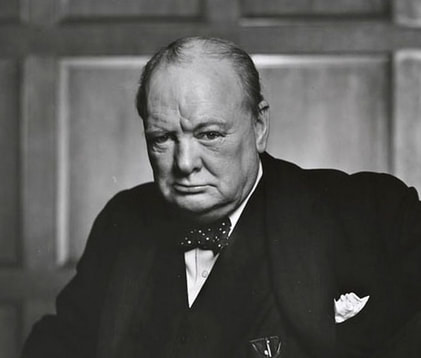 Consider one of the most dramatic examples, Winston Churchill, who was Prime Minister of Great Britain during one of the most difficult periods in its history. From childhood to adulthood he survived so many diseases, accidents, and wartime situations that could have ended his life, that he developed the belief that he had been chosen for great things. This was seemingly proven true when Churchill, against nearly insurmountable odds, led Britain to victory during World War II. Could Churchill’s survival have been due to chance, or is there a deity, or force, or entity that protects and propels some individuals to overcome adversity and guide their people in times of trouble? This is not a scientific question, but we can certainly consider whether this proposition has some internal consistency. 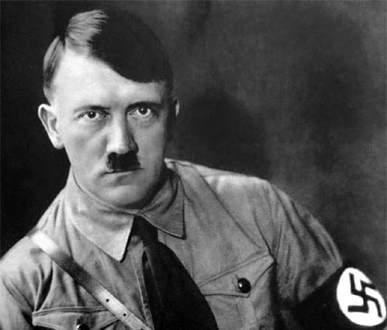 Consider the diametrical opposite of Winston Churchill, Adolph Hitler. He not only survived four years of military service during the First World War, but he also survived many assassination attempts and persevered against all odds to become Chancellor of Germany. As did Winston Churchill, Hitler believed he had been chosen by providence to achieve great things, however, the world considers him today the epitome of evil; a deranged tyrant responsible directly and indirectly for the death of millions. How is the miraculous survival of Churchill any different from that of Hitler? If one is not fortuitous, it is hard to argue that the other is. To preserve the consistency of the proposal that a deity, force, or entity chooses, protects, and propels some individuals towards good things in times of trouble, you would have to accept that there are also deities, forces, or entities that choose, protect, and propel individuals towards bad things. So, you are left with arguing that history is some sort of grand dueling ground of deities, forces, or entities, and we are the pawns.
There is, of course, a simpler explanation: chance. There are countless individuals on this planet that face extremely trying circumstances and perish in the process or are physically and/or psychologically scarred for life. A certain proportion of these individuals survive and go on to lead average lives. A smaller proportion develops the notion that their survival and success is somehow dictated by a higher power, and this factor may become a driving force behind the choices they make in life (both good and bad). Finally, out of this last group of individuals a select few find themselves in the right place at the right time, and have the smarts, the talent, and the character to propel them to positions of power where they can influence the lives of millions of people. These are the really scary ones. When you develop the notion that you are being guided by a higher power, there is the temptation to not listen to opposing views and to see all those that oppose you as standing in the way of the fulfillment of your rightful preordained destiny. You may here be tempted to argue that you would choose Churchill over Hitler any day of the week, nonetheless consider this: in this post I presented Churchill and Hitler as polar opposites, but the truth is far more complicated. Churchill participated in, promoted, and sanctioned many despicable colonial and imperial activities of the British Empire, and he held dismal opinions of non-white cultures and individuals. In the real world, boundaries are blurry things. Science has found that our brains are programed to look for patterns, and we often can’t avoid making sense of the swirling reality around us by interpreting it within the context of our personal history and beliefs. Most of us may rationally understand the role of chance if we flip a coin ten times and obtain ten heads, but surviving ten assassination attempts is something that we may interpret in a vastly different way. Such is the complexity of the human mind, but still we must try. So please, next time that sensation of feeling special, of being chosen, of being destined for great things comes along, do humanity a favor and read a little about probability. Thanks! Churchill picture by Yousuf Karsh used here under a Creative Commons Attribution 2.0 Generic (CC BY 2.0) license. Hitler Picture, copyright by |
Details
Categories
All
Archives
June 2024
|
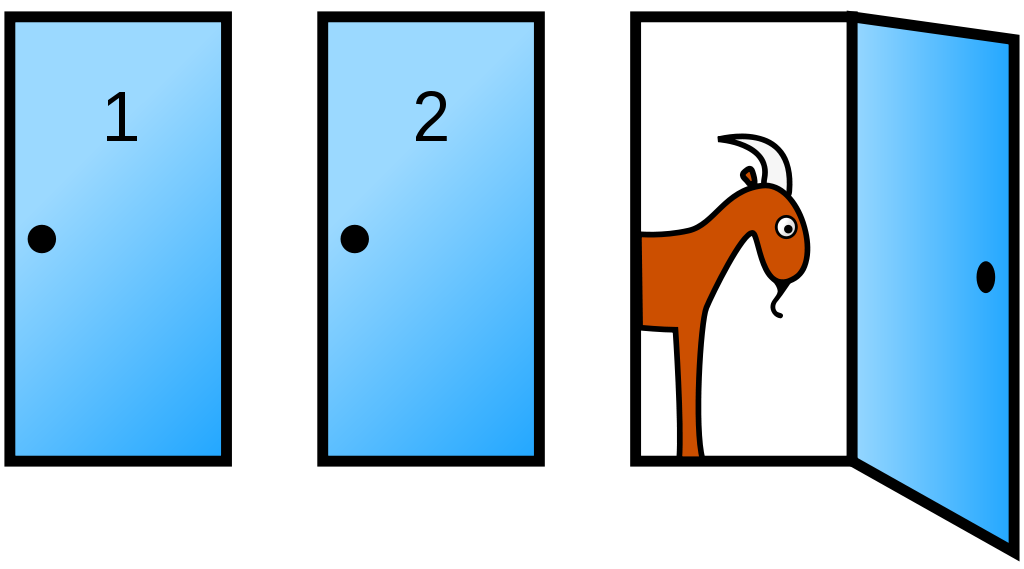
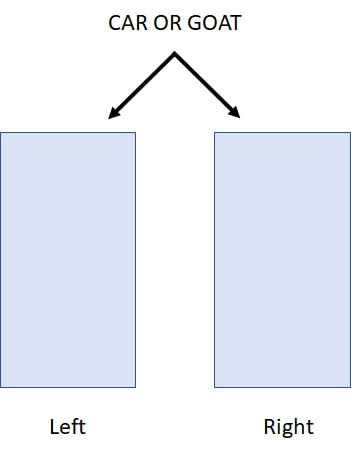
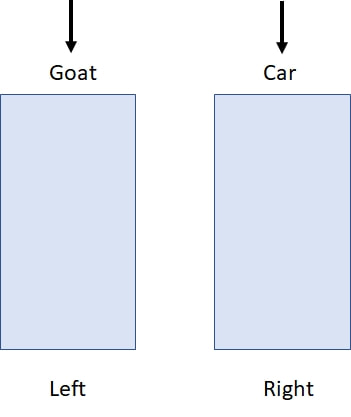
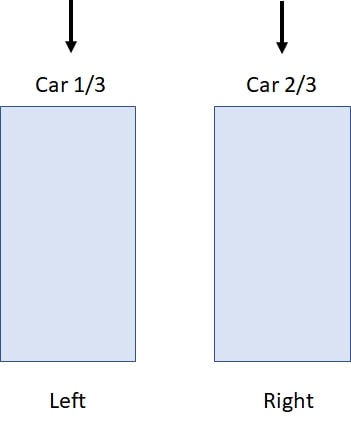
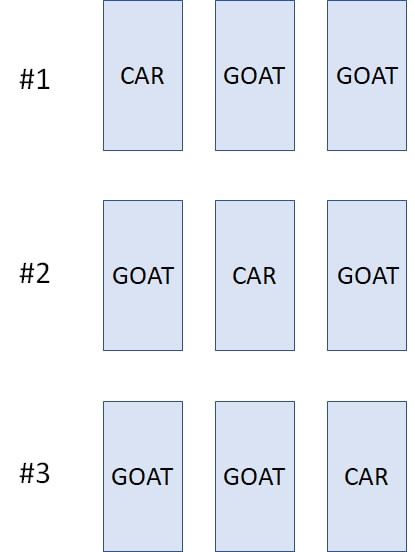
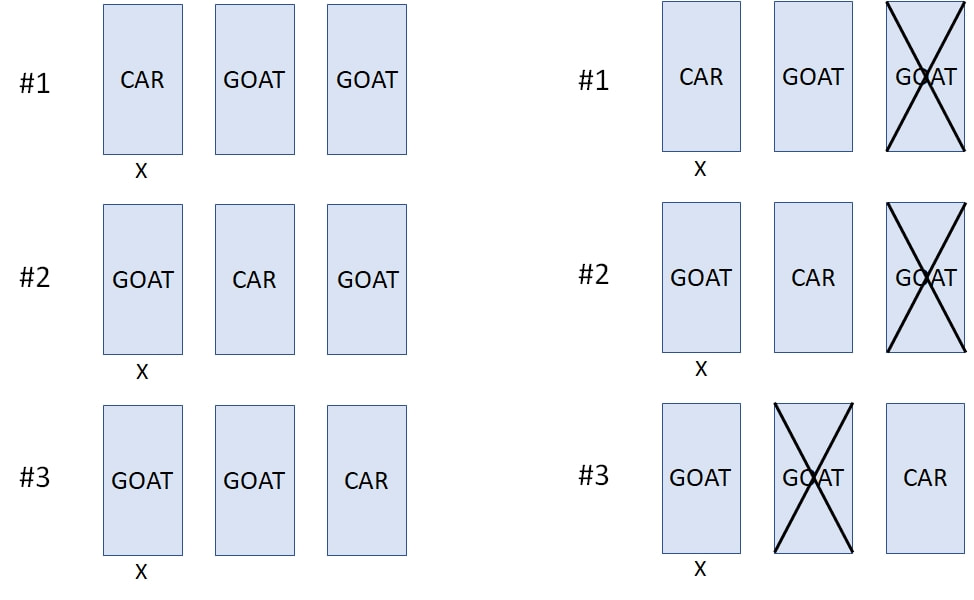
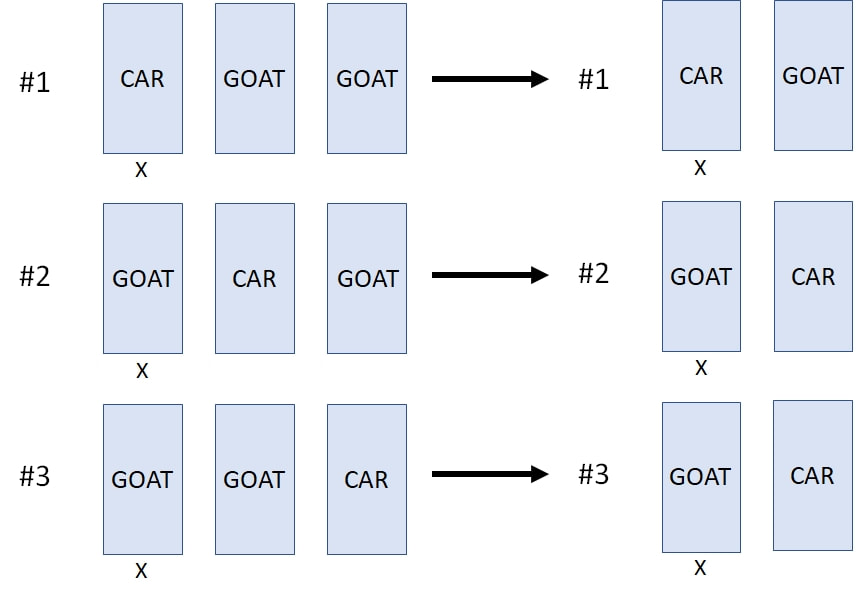
 RSS Feed
RSS Feed